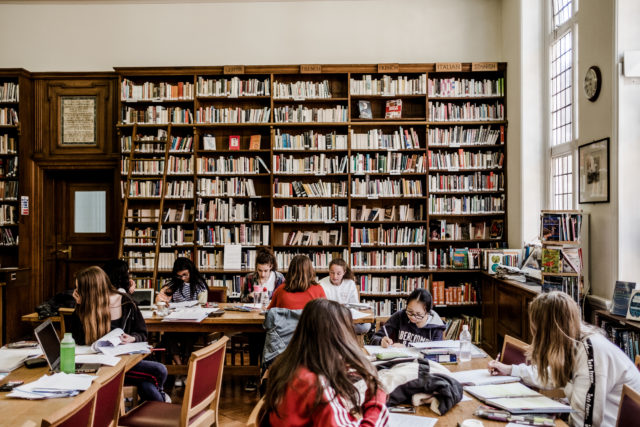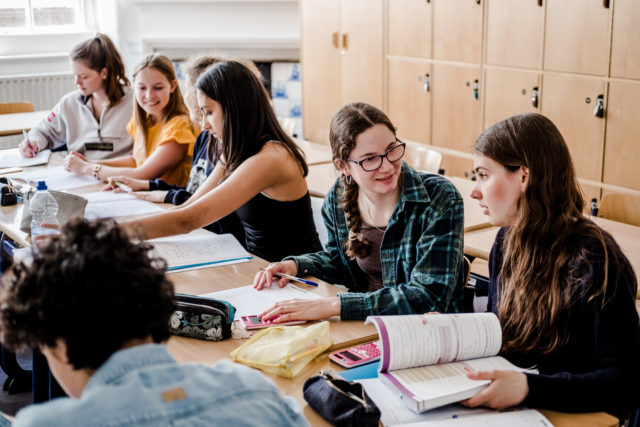Latin and Greek
Classics is one of the most fascinating, varied and interdisciplinary of all subjects; it takes us into the very heart of two great civilisations with their rich and influential literature, history and thought, and in doing so leads us to reflect on aspects of our own society and of ourselves.
What we study
At the beginning of the course, the primary aim is to extend language skills and fluency of reading. Formal grammar and translation practice, including simple composition into Latin or Greek, will take up about a third of teaching time, alongside a wide-ranging programme of reading, designed to demonstrate the richness and diversity of classical literature. Reading will move easily between poets such as Simonides, Sappho, Catullus and Horace, prose writers of history such as Tacitus and Herodotus, and orators such as Lysias and Cicero.
Independence of reading is an important difference between GCSE and A level study, and the emphasis will be on learning to read texts critically, and with an increasingly informed understanding of their literary qualities. During the spring term, formal language work continues, while the focus in literature lessons moves towards the set texts: Homer Odyssey 10, Plato Apology, Cicero Pro Milone and a selection from the elegiac poetry of Ovid, Tibullus and Propertius.
In the second year of both Latin and Greek, two further texts will be studied, chosen to enhance and complement those already studied, and likely to include some epic verse in Latin and part of a tragedy in Greek. Language skills are further developed through unseen translation of both prose and verse passages, and composition into Latin and Greek. The allocation of marks in the final examination is equally divided between the literature and the language components of the course.

Beyond the curriculum
A level study of Classical subjects is by no means confined to the classroom or defined simply by the syllabus. Senior students run a thriving Classics Society, holding about five major meetings a year and welcoming students from a large number of London schools to hear eminent speakers on a wide range of topics. Senior students also help to run a Junior Classics Club in school and teach as part of the very popular Minimus Latin scheme, which runs during term on a weekly basis in two local primary schools. The Classics magazine Marmor is well established, led by an editorial team of pupils from the Senior School, and our students regularly enjoy success in the London Schools Classics reading competitions. For the past six years, A level puplis have also been instrumental in producing and directing a play, most recently Aeschylus’ Prometheus Bound in the original Greek, which brings together students from the Middle and Senior Schools.
We also run regular visits to performances of classical plays in London and further afield. Horizons are further extended literally as well as intellectually by trips abroad, most recently to Rome in 2014 and Greece in 2017.
Where it might lead
Students of Latin and Greek proceed to university to read Classics, or other similar subjects such as English, history, or history of art. Beyond university, classicists are highly valued by employers and Paulina classicists are enjoying successful careers in areas such as law, journalism, international development and business.

Qualification
A level
Board
OCR
Mode of Assessment
100% examinations